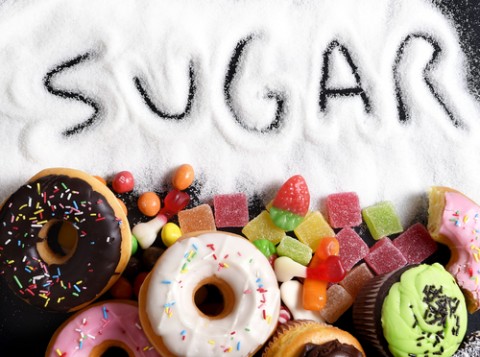It’s no surprise that experts say Americans consume far too much sugar each day. New research from a study conducted by Martin Luther University Halle-Wittenberg and the Biotechnology Research and Information Network AG says it’s a worldwide problem. According to their research, the cost of dental treatments globally are approximately $172 billion U.S., or 128 billion euros.
The research teams looked at data on tooth decay, gum inflammation and tooth loss. They also evaluated the consumption of white household sugar and the hidden sugars found in nearly all processed foods, drinks and condiments. Finally, they looked at the cost of treatments in relation to dental concerns commonly caused by sugar consumption.
Just How Much Sugar Are We Consuming?
According to the results of the study, every 25 grams of sugar consumed per person per day caused an increase of $100 U.S. per person per year. To put that into perspective, 25 grams of sugar equals less than one can of soda, one glass of lemonade or one medium flavored latte.
Today, the average American consumes approximately 114.5 grams, or 22.9 teaspoons, of sugar per day, according to Pew Research. Surprisingly, this number has actually started to decrease since its peak in 1999 when Americans were consuming around 133.5 grams, or 26.7 teaspoons, a day.
What Does All This Mean for Our Teeth?
Knowing that sugar isn’t good for you is one thing, but once you realize the serious implications sugar could be having on your mouth and your wallet, you may ask yourself what all this means. Understanding the process is the first step, said Dr. John Pappas, DDS, of Arcadia Dental Arts in Phoenix, Arizona.
“It’s not the sugar itself causing the decay, but the sugar sets off a chain of events that leads to cavities, tooth decay and even eventual tooth loss,” he said.
A mixture of good and bad bacteria reside in your mouth. When you consume sugar, the harmful bacteria in your mouth digest the sugar, and acid that is extremely harmful to teeth is produced. It removes minerals from the enamel, which is the protective outer layer of each tooth. When this happens, demineralization occurs.
“Demineralization is the first stage of tooth decay,” said Pappas. “You can actually see it happening if you pay attention. Those white areas on the teeth are caused by acids attacking the enamel.”
One of the roles saliva plays is to help rinse debris and food particles from the mouth after eating. It also helps neutralize acids in the mouth. This is why dentists recommend consuming sugary food or drinks in one sitting instead of slowly sipping on them throughout the day. This gives saliva the chance to do its job and lets the mouth return to a balanced environment before the next meal.


